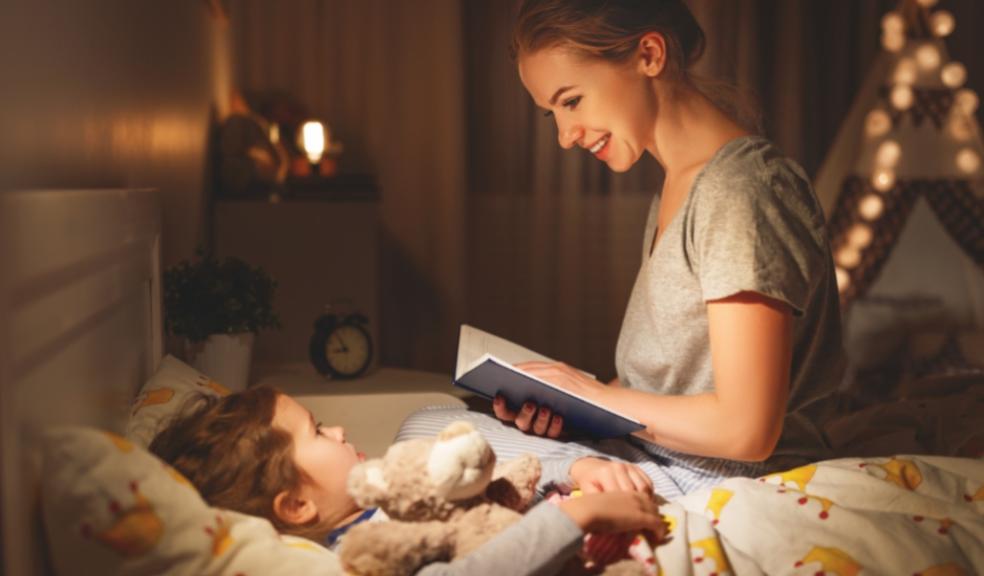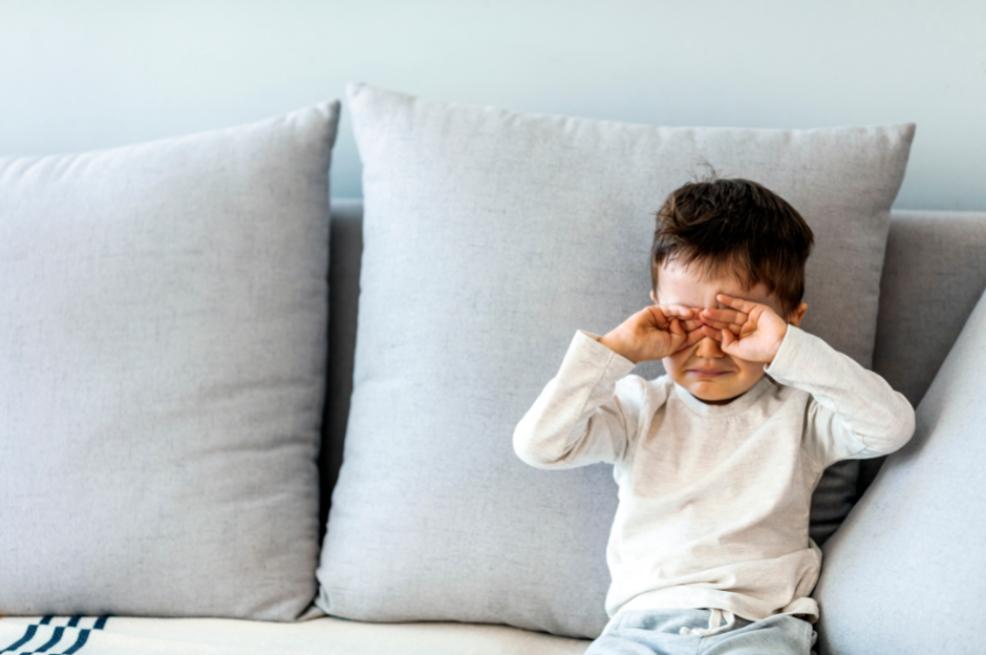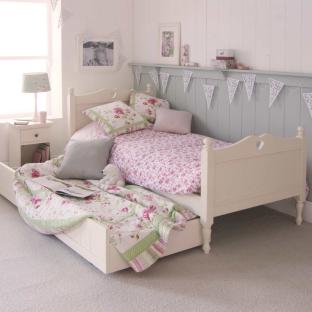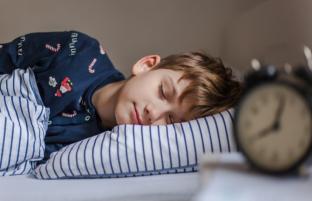
One in five kids have trouble getting to sleep
Mobile phones and TVs blamed for keeping kids awake at night
Lack of sleep means significant classroom impact says ‘Bed Poverty’ charity Zarach
One in five children have difficulty getting to sleep at night and the main causes are mobile phones, video games, and TV, according to a survey.
The survey of 1,000 parents, carried out on behalf of Bensons for Beds, also showed that a lack of sleep can have a dramatic impact on children’s behaviour, affecting their ability to study at school and making them more argumentative at home.
 Tears at bedtime image By ljubaphoto
Tears at bedtime image By ljubaphoto
In the study, 19 per cent of parents said their child or children had difficulty getting to sleep.
And across the country, parents in Scotland (34 per cent), East Midlands (33 per cent) and the North East (27 per cent) were those most concerned about their children having difficulty falling asleep.
Asked to name the main culprits, 44 per cent blamed mobile phones, 26 per cent video games and 21 per cent TV for preventing their children getting to sleep.
While electronic devices were a problem, other bedtime challenges mentioned by parents included social media, fear of missing out, an inability to unwind, anxiety and worrying about school.
The survey was carried out by Bensons for Beds in National Bed Month to raise awareness about the health and well-being benefits of children’s sleep.
Bed Poverty campaigning charity Zarach, founded by Leeds teacher Bex Wilson, said the findings underscored their work in West Yorkshire and Essex to make sure kids got the sleep they needed to enable them to shine at school.
Bex Wilson, Founder and Chair, Zarach, said: "We know that a good night's sleep and a tummy full of food gives every child the best possible chance to succeed at school. We receive messages from teachers all across the UK with the same concern; tired children are less likely to engage in education and, therefore, break free from the cycle of poverty."
Bensons recently surprised Rebekah with a live TV donation of 50 mattresses on C4’s Steph’s Packed Lunch in support of Zarach’s mission to ensure every head has a bed so children living in poverty had an equal chance to succeed at school.
Bensons’ study showed how a lack of sleep affects children’s behaviour, with 54 per cent of parents saying it left them struggling to concentrate. Other effects included arguing with family (30 per cent), being naughty (28 per cent), sleepy at school (25 per cent) and eating more junk food (14 per cent).
 Image of boy watching a smartphone in bed By lumineimages
Image of boy watching a smartphone in bed By lumineimages
Overall, the survey showed:
- two thirds of children got between eight and 10 hours sleep a night and 81 per cent had no difficulty falling asleep, though 42 per cent fell asleep during the day.
- Parents said that 91 per cent of children had a set time for going to bed, typically between 8pm and 10pm.
- A third of children had a set routine, including dinner, bath time, cleaning their teeth and having a bedtime story.
Asked for their tips for a good night’s sleep for their children, parents suggested having a device-free period before bed, getting plenty exercise, sticking to a routine, avoiding sweets, reading, and having a quiet time.
Bensons for Beds’ Helen Nunn said: “The good news is that parents know how important a good night’s sleep is for the health and well-being of their children.
“But even though most kids are getting plenty of sleep, there is still a significant proportion who have difficulty getting to sleep and parents can see the impact it has on their behaviour and their ability to learn.”
According to Bensons for Beds sleep expert Dr Sophie Bostock, parents are right to highlight the disruptive impact technology has on getting to sleep and should encourage their children to go technology-free before bedtime.
She said: “It’s great that so many people recognise the importance of having a bedtime routine and scientific studies have repeatedly shown that having screen-free time at night helps to unwind and get ready for sleep. Alternatives such as reading a book, having a bedtime story or just have quiet time are much better.”
Other Parenting Articles for you
Five top tips for designing a harmonious children’s room
Cover photo By evgenyatamanenko on Canva
















